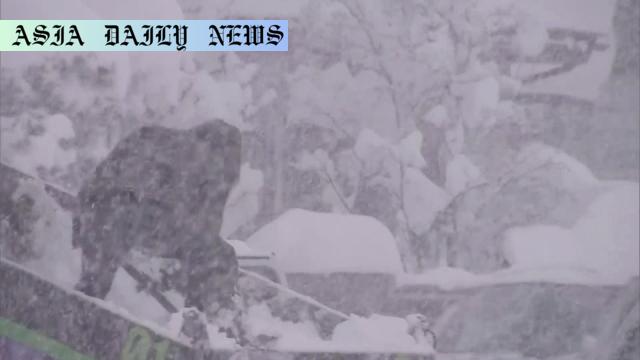Heavy Snow expected: This season’s coldest air mass is set to blanket western and central Japan’s flatlands with rare snowfall.
Heavy snow and strong winds are forecast for Japan this weekend.
The snow is expected to hit both mountainous and flatland areas.
Authorities warn of traffic disruptions, avalanches, and power outages.

Extreme Weather Hits Japan
Japan is bracing for a powerful cold spell that is set to blanket wide regions of the country with heavy snow over the weekend. Forecasters describe this as one of the most severe winter weather systems of the season, bringing extreme conditions to numerous areas, especially those along the Sea of Japan coast. Flatlands in regions from central to western Japan, which rarely experience snowfall, are also expected to see snow accumulations.
Surging Snowfall Across Regions
The meteorological agency has already observed significant snowfall in areas such as Tohoku and the mountainous regions of Niigata and Gifu prefectures. As of Friday evening, Okura Village in Yamagata Prefecture reported a staggering 3.25 meters of snow, followed by 3.17 meters in Uonuma City, Niigata, and 2.79 meters in Tadami Town, Fukushima. The agency has indicated that further snowfall is likely to intensify.
Snow Predictions and Impacts
Forecasts suggest that the Kanto-Koshin region could receive up to 80 centimeters of snow, with Tohoku, Kinki, and Niigata regions seeing accumulations of up to 70 centimeters. The Chugoku region and Gifu Prefecture are expected to see as much as 60 centimeters, while Hokuriku could experience 50 centimeters. In addition to the heavy snowfall, strong winds and rough seas are also anticipated, exacerbating potential disruptions.
Warnings and Precautions
Authorities have urged residents and travelers to exercise caution during this period of adverse weather conditions. The cold spell is likely to cause traffic disruptions, with the possibility of road closures and delays in air or rail transport. There is also a heightened risk of avalanches in snow-covered areas, along with potential power outages and damages from fallen trees. Coastal regions face threats of rough seas, and high waves. Residents are advised to prepare for these emergencies and stay informed through official weather updates.
Unusual Patterns This Season
Experts have noted that this season’s weather patterns have brought an unusually early and intense buildup of snow across several regions. While heavy snowfall is typical for specific areas of Japan, such as mountainous regions, the onset of extreme conditions in flatlands is less common. This has raised concerns regarding its impact on infrastructure, agriculture, and daily life in these regions.
Conclusion: Staying Safe Amid the Cold Spell
As Japan faces this severe cold spell, preparedness and caution will be key to navigating the challenges it poses. Authorities continue to monitor the situation closely and provide updates to the public. Residents are urged to prioritize their safety, avoid unnecessary travel, and ensure that they have adequate supplies to withstand potential disruptions caused by this extreme weather event.
Commentary
The Challenges of Extreme Snowfall
The recent forecast of heavy snow in Japan serves as a stark reminder of how dynamic and unpredictable nature can be. This season’s cold spell has already brought unprecedented snowfall in various regions, including areas that do not typically experience these icy conditions. As a result, millions of people across the country must brace for disruptions and adapt to dealing with challenges posed by extreme weather.
Climate Concerns and Preparedness
Extreme weather events such as this raise questions about climate patterns and how unpredictable shifts can strain infrastructure and daily life. The rare occurrence of snowfall in flatland regions signals possible changes in seasonal trends. For residents, preparedness becomes a vital skill, whether it’s stocking up on essentials or planning against disruptions in transportation and utilities. Safety measures, such as securing homes against power outages or being mindful of avalanche warnings, are of utmost importance.
Lessons in Crisis Management
This event also underscores the resilience of Japan’s weather forecasting and alert systems. With timely updates and warnings, residents and local governments have the tools they need to act in advance. However, this serves as yet another reminder of the importance of long-term adaptation strategies and support systems to prepare for future challenges posed by nature.
In times like these, empathy and community spirit come to the forefront. Looking out for neighbors, sharing resources, and adhering to safety recommendations can make a big difference in ensuring everyone stays safe during this cold spell.


